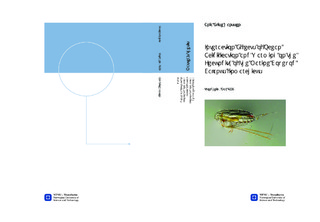Interaction Effects of Ocean Acidification and Warming on the Fecundity of the Marine Copepod Calanus finmarchicus
Master thesis
Permanent lenke
http://hdl.handle.net/11250/245455Utgivelsesdato
2014Metadata
Vis full innførselSamlinger
- Institutt for biologi [2573]
Sammendrag
This study provides the first information on the combined effect of ocean acidification and elevated temperature on the fecundity of the marine pelagic copepod Calanus finmarchicus (Gunnerus, 1770). The copepod is considered to have a key role in the transfer of planktonic production to fish, seabirds and marine mammals, and is stated as a key species in the North Atlantic food web and ecosystem. To obtain a better understanding of the links between physical forcing and the population dynamics of C. finmarchicus in order to predict responses to climate change, it is fundamental to observe the reproduction, which sets the upper limit on recruitment. To study interactive effects of elevated pCO2 and temperature, ovigerous females (that had developed from eggs under the same conditions) were incubated at 380 ppm(ambient) and 2080 ppm (future predictions), and temperatures at 11 and 14˚C in a 2x2 factorial design. A significant reduction in hatching success (75%) and egg production (79%) was observed in the warming treatment alone (+3˚C) compared to the ambient treatment, and a positive antagonistic effect of acidification was when combined with warming. No significant interaction was seen in the lipid storage; however, temperature alone caused a significant reduction (95%). The body volume and the sex ratio were affected by elevated pCO2 and temperature combined or separately. Combined, the observed effects suggest that C. finmarchicus may be robust to future predicted conditions.
